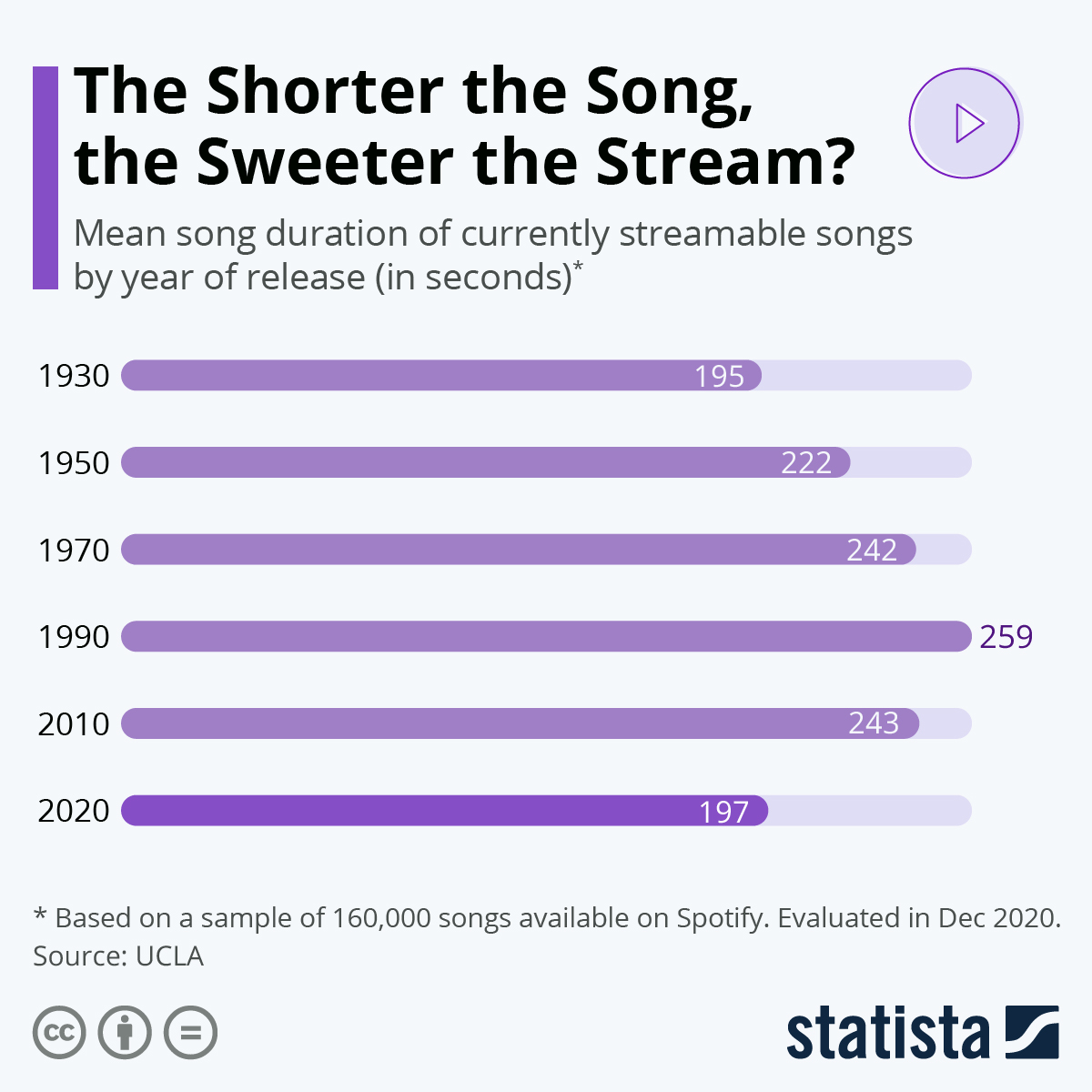The average song released on Spotify in 2020 clocked in at three minutes and 17 seconds – just two seconds more than songs from 1930. According to data scientists at UCLA, this is evidence of a growing trend to shorten song lengths starting in 1990. But even back then, the mean duration of a track was considerably less epic as one might imagine.
Analyzing a dataset of 160,000 songs pulled from the Spotify API, the researchers came to the conclusion that songs released in 1990 had a mean duration of four minutes and 19 seconds. This, of course, is a far cry from a lot of hit songs and especially the longest tracks reaching the top spot Billboard Hot 100 over the last decades, a ranking which was upset by Taylor Swift's song "All Too Well (10 Minute Version)" in 2021. General analyses as to why songs are becoming shorter have proven inconclusive so far. While the technical limitations before the advent of digital recording and playback solutions – available minutes on a vinyl single, material cost for recording on tape – in the first half of the 20th century could partly be blamed for its rather short mean song duration, the 21st century has no such limitations.
Instead, the UCLA researchers speculate that the attention span of music listeners has decreased over the years, with so many different entertainment avenues readily available for consumption. With users skipping through tracks more on their preferred streaming services, the underlying algorithms could instead promote shorter tracks that are listened to in full to keep their audience engaged, recommending them to more listeners and therefore setting a precedent of what constitutes a successful song. While there is no way to definitively prove this theory in the end, it's likely that streaming, which in 2020 generated $13.4 billion in revenue against physical and digital record sales of $5.4 billion, plays and will play a big role in this development.





















